Froome: A fitting champion for an age of uncertainty
Scrutiny for first Tour de France winner after Armstrong affair
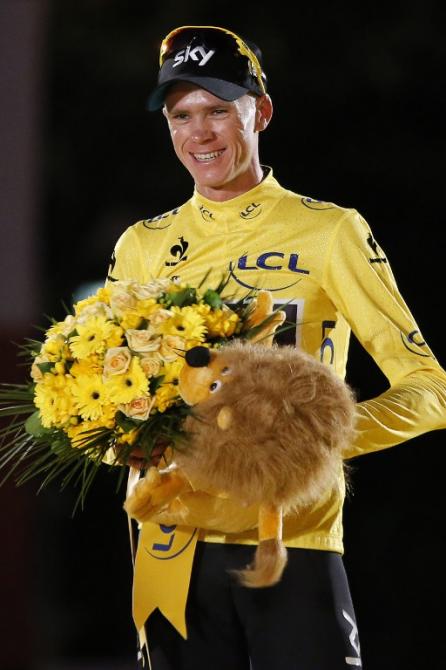
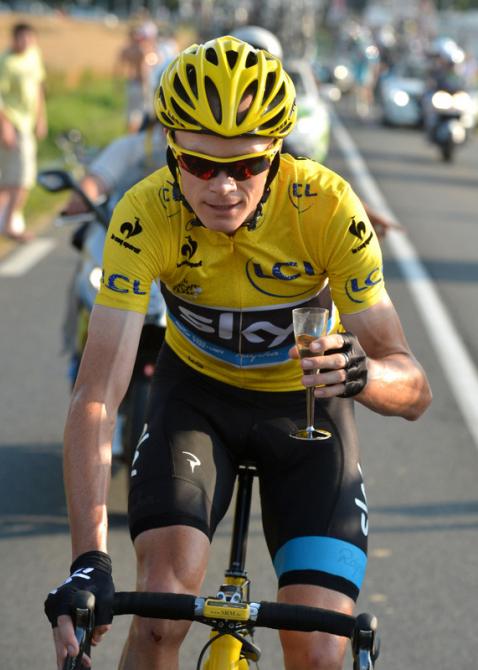
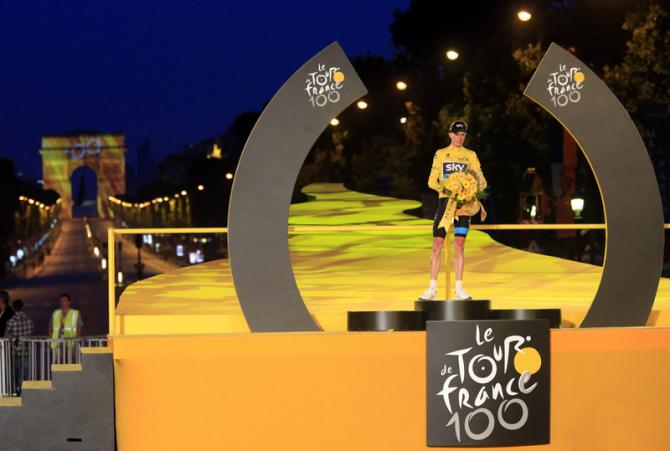
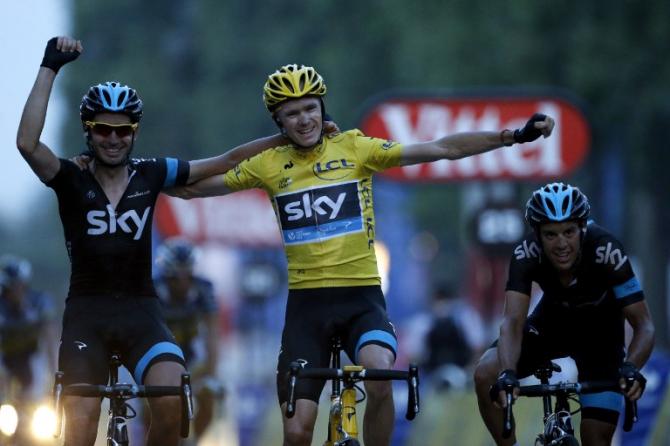
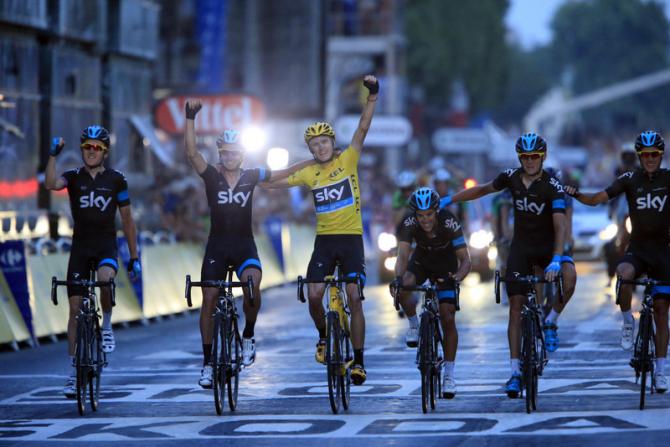
One banner on the roadside on the stage to Alpe d'Huez summed up the general mood better than any other at this Tour de France. It was handiwork of an onlooker who had come neither to bury nor to praise the yellow jersey, but simply to wonder. "Froome?" it asked.
By that point, Chris Froome had answered almost all of the serious questions he would be asked out on the road. On the first summit finish at Ax 3 Domaines, he got his retaliation in first by burning the race off his wheel to take stage victory and the maillot jaune. When his Sky team faltered the following day, Froome himself responded with ease to the attacks of Movistar's Alejandro Valverde and Nairo Quintana.
Alberto Contador waded into the debate when he gained a minute en route to Saint-Amand-Montrond on stage 13, but two days later on the arid slopes of Mont Ventoux, Froome delivered a harsh riposte, breaking the Spaniard with a vicious acceleration a little over six kilometres from the summit. In the individual time trials, to Mont-Saint-Michel and Chorges, Froome padded out his advantage still further, divesting the race for yellow of its suspense as the race drew to a close.
At the Tour de France, of course, the queries don't stop at the finish line. In taking the yellow jersey so early in the race, Froome faced two weeks of post-stage press conferences and a day didn't go by without a direct question about or a thinly-veiled allusion to the suspicions his performances had provoked.
"I certainly know that the results I'm getting are not going to be stripped 10, 20 years down the line – rest assured it's not going to happen," Froome politely told the Tour's press corps after he seized the maillot jaune at Ax 3 Domaines. "I think if people got more of a look into [my training] they would see that that work equals these results and it's not something that's so wow, so unbelievable. It does actually add up if you look and see what actually goes into this."
Two days later, after the race caravan had made the long hike north to La Baule on the Atlantic coast, Sky manager Dave Brailsford was asked if he felt he could do more to show his team's good faith beyond looking journalists in the eyes and asking them to believe. He said that he was reluctant to release raw power data to be parsed and analysed by what he termed "pseudo-scientists" but he didn't help dispel the sense that there is a something of a War on Information at Team Sky with a needlessly flippant response to a follow-up question
When asked how one Sky rider had managed to lose 5 kilograms since the Tour de Romandie, Brailsford simply said, "Through calorie deficit" and invited the journalist to talk to "Nigel the nutritionist" instead, before adding the Donald Rumsfeld-esque non-response of: "They're the types of questions that would be legitimate to answer."
Get The Leadout Newsletter
The latest race content, interviews, features, reviews and expert buying guides, direct to your inbox!
For his part, Froome maintained his cool day by day as he batted away the variations on a recurring theme that were lobbed in his direction. Indeed, a discernible routine was visible every time he came to the crease. Froome placed the microphone on the table between each question as if to give himself time to think before speaking, and developed the tic of nodding in affirmation at the end of every response.
It was precisely the kind of in-house media training that Vélo Magazine had already decried before the Tour – "Froome is an intelligent man, extremely courteous […] but he is not himself when he speaks, marked by a mechanical voice and delivering a discourse devoid of substance" – but it arguably served Froome in July as his press conferences turned into a series of maiden overs.
The only time a flicker of irritation entered Froome's voice was during his press conference on the second rest day in Orange, which, in their wisdom, Sky's PR czars decided to limit to just 15 minutes. Rather than alleviate the pressure, that move simply ensured a quarter-hour barrage of doping questions for Froome and at the end, he left the top table with a shake of his head. "I just think it's quite sad that we're sitting here the day after the biggest victory of my life, quite an historic win, talking about doping," he said. "Here I am basically being accused of being a cheat and a liar and that's not cool."
That was the day after Froome's remarkable victory on Mont Ventoux, where his seated attack gave the disquieting impression that his bike was travelling too fast for his body. It was striking, too, that Froome kept his eyes fixed on his power-meter during the acceleration, but Brailsford again flatly refused to release the information it contained into the public domain, instead claiming that he would provide it to WADA if they were to assemble an expert panel to analyse it.
A concession was finally made to L'Équipe in the third week of the race, as Sky provided the newspaper and FDJ trainer Fred Grappe with Froome's power data for selected climbs since his sudden emergence at the 2011 Vuelta a España. The "Froome Dossier" reached the conclusion that the yellow jersey's "average power output was very well integrated and therefore completely expected."
As is the often the case in such matters, the publication of the dossier probably did little other than polarize existing opinions. For some, L'Équipe's vocal support of the yellow jersey was confirmation enough of Froome's good faith. For others, the lack of information pre-dating his surprise showing at the 2011 Vuelta, a race Froome entered without a contract for the following season (giving lie, perhaps, to Brailsford's assertion that he always saw the rider as "a diamond in the rough, who had a huge potential"), did little to allay concerns.
Sky have dismissed the scepticism espoused by the likes of Antoine Vayer as pseudo-science but in the opposite corner, the trust professed by David Walsh of the Sunday Times reads like little more than blind faith, for all that he was embedded with the squad since the beginning of the season. As the Tour drew to a close, the cycle of questions and answers from both sides of the argument seemed almost to spin itself out.
In his winner's press conference atop Semnoz on Saturday evening, Froome said that he understood the scepticism that had greeted his performances given that this was the first Tour de France since Lance Armstrong was stripped of his seven titles after the systematic doping programme in place at his US Postal Service team was unmasked by the US Anti-Doping Agency and the FDA.
"It's understandable, 100 percent understandable given where the sport has come, the history of the sport," Froome said. "I think whoever was going to be in this position, whoever was going to be win the yellow jersey was going to come under the same amount of scrutiny, the same amount of criticism from journalists and fans. I accept that, I completely understand."
The echoes of history have had an uncomfortable ring for Froome at times on this Tour, as his remarkably high level of performance has drawn comparisons with Armstrong. It is unfortunate, too, that the American and his entourage cornered the market on brazen denials, meaning that any protestations of innocence for the foreseeable future are destined to be met with scepticism by a jaded public.
That scrutiny faced by Froome and the wariness of many to acclaim the new Tour champion is not only a direct reaction of Armstrong's belated downfall, however, but a consequence of repeated false dawns during a dark night of the soul that has lasted at least 15 years.
There have been repeated possibilities of a Year Zero for cycling since 1998 – the Festina Affair, the San Remo blitz, Operacion Puerto, the Rasmussen Affair, the CERA positives of 2008, the USADA reasoned decision – and each time, the old lie, that "cycling has never been cleaner," has been trotted out with the same high zest. And yet each time, cycling has been borne back into the past.
Only time will tell if that is the case once again. For now, the polarizing figure of Froome carries the burden of being a fitting champion for an age of such uncertainty.

Barry Ryan was Head of Features at Cyclingnews. He has covered professional cycling since 2010, reporting from the Tour de France, Giro d’Italia and events from Argentina to Japan. His writing has appeared in The Independent, Procycling and Cycling Plus. He is the author of The Ascent: Sean Kelly, Stephen Roche and the Rise of Irish Cycling’s Golden Generation, published by Gill Books.